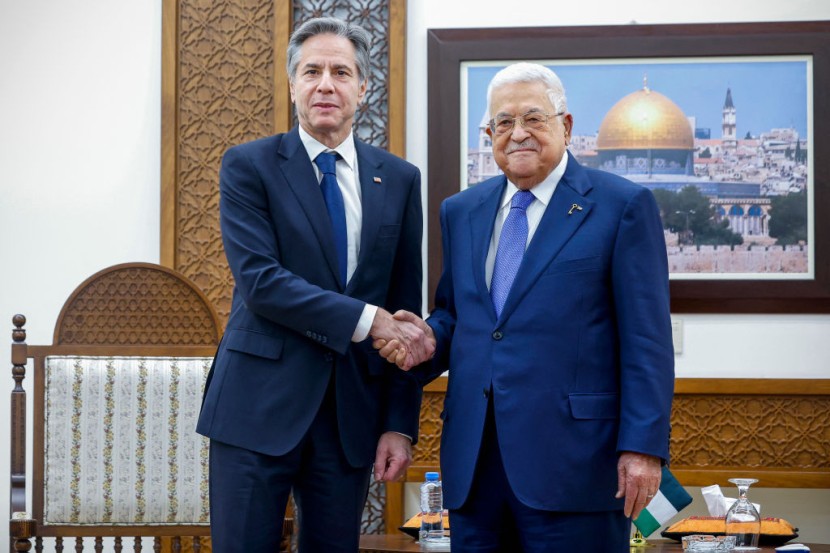US Secretary of State Antony Blinken met Palestinian Authority (PA) President Mahmoud Abbas in the West Bank on Wednesday (January 10) as part of his whistle-stop Middle East tour as the war between Israel and Hamas is set to escalate further.
The visit came after the top diplomat urged Israeli Prime Minister Benjamin Netanyahu and other officials to offer a pathway for the establishment of a Palestinian state.
Reuters cited pool reporters traveling with Blinken when they said he had to cross Israeli checkpoints to reach the de facto Palestinian capital of Ramallah.

Talks of Self-Governance
Blinken told reporters on Tuesday night (January 9) that he and Abbas would discuss the PA's responsibility to reform itself and improve its governance, which reflected Washington's view that the 88-year-old Palestinian leader needed to overhaul the entity in preparation to govern a post-war Gaza.
The PA - mainly ruled by Abbas's Fatah party - remained to be the best hope for a unified Palestinian government of both West Bank and Gaza, the latter of which was under the control of Hamas.
Additionally, the State Department said that Blinken discussed with Abbas about ongoing efforts to minimize civilian harm in Gaza and increase the delivery of humanitarian assistance throughout the enclave.
Blinken's next stop is Bahrain to meet King Hamad bin Isa Al Khalifa. He would return to Tel Aviv later in the evening.
Blinken's Middle East Tour
The latest Middle East tour by Blinken - the fourth since the October 7 attack - was to talk with Washington's Arab allies, some of which are considering normalizing relations with Israel if only it would include a "practical pathway" to a Palestinian state.
What made Palestinian statehood and normalization processes in the Middle East difficult is the fact that US-brokered talks for a Palestinian state collapsed almost a decade ago. At the same time, right-wing members of Netanyahu's ruling coalition and war cabinet oppose Palestinian statehood.
At a news conference, Blinken declined to characterize how Netanyahu's cabinet responded to his appeal for a Palestinian state, saying that Israel would have to make "hard decisions" and "hard choices" to take advantage of the opportunity offered by regional integration.
"Extremist settler violence carried out with impunity, settlement expansion, demolitions, evictions, all make it harder, not easier for Israel to achieve lasting peace and security," he said, alluding to conflict in the West Bank.
© 2025 HNGN, All rights reserved. Do not reproduce without permission.








